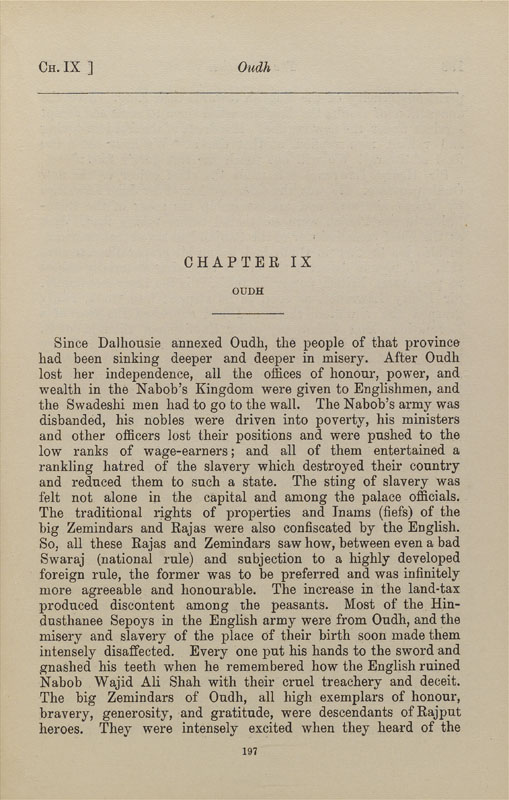n
CHAPTER IX
OUDH
Since Dalhousie annexed Oudh, the people of that province
had been sinking deeper and deeper in misery. After Oudh
lost her independence, all the offices of honour, power, and
wealth in the Nabob's Kingdom were given to Englishmen, and
the Swadeshi men had to go to the wall. The Nabob's army was
disbanded, his nobles were driven into poverty, his ministers
and other officers lost their positions and were pushed to the
low ranks of wage-earners; and all of them entertained a
rankling hatred of the slavery which destroyed their country
and reduced them to such a state. The sting of slavery was
felt not alone in the capital and among the palace officials.
The traditional rights of properties and Inams (fiefs) of the
big Zemindars and Rajas were also confiscated by the English.
So, all these Rajas and Zemindars saw how, between even a bad
Swaraj (national rule) and subjection to a highly developed
foreign rule, the former was to be preferred and was infinitely
more agreeable and honourable. The increase in the land-tax
produced discontent among the peasants. Most of the Hin¬
dusthanee Sepoys in the English army were from Oudh, and the
misery and slavery of the place of their birth soon made them
intensely disaffected. Every one put his hands to the sword and
gnashed his teeth when he remembered how the English ruined
Nabob Wajid Ali Shah with their cruel treachery and deceit.
The big Zemindars of Oudh, all high exemplars of honour,
bravery, generosity, and gratitude, were descendants of Rajput
heroes. They were intensely excited when they heard of the
197 I
I
|








